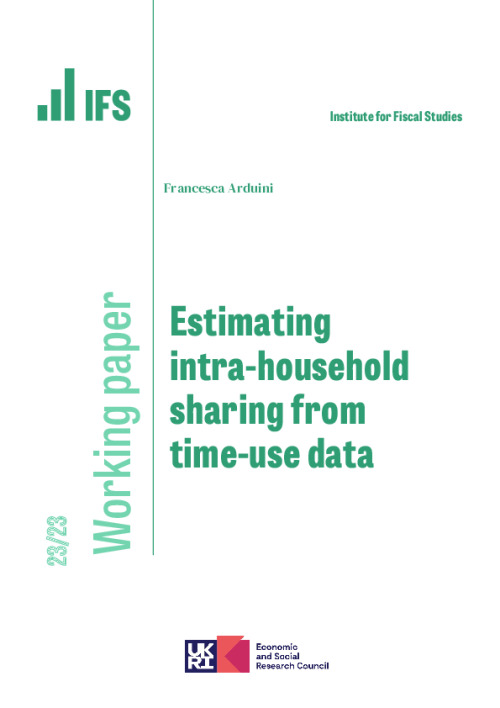Households do not share resources equally between their members, so estimating intra-household inequality is crucial to understanding overall inequality. However, estimating the sharing rule is difficult because expenditure data is almost always at the household level. A growing literature proposes methods to estimate sharing from individual-level demand data for a single private good, the ‘assignable good’. Building on recent developments in this literature, this paper extends the underlying structural household model and identification results in several directions. Using private leisure as the assignable good, I show it is possible to estimate sharing by linear regression from time-use data alone. I illustrate this approach for UK working couples. Women command fewer resources than men on average, and characteristics such as wages affect sharing in a manner consistent with bargaining theory.









